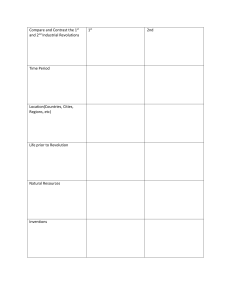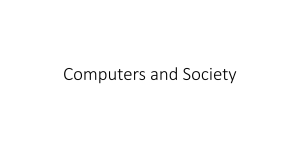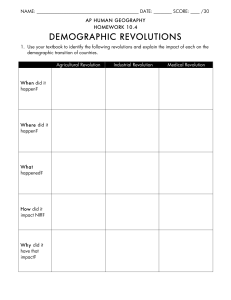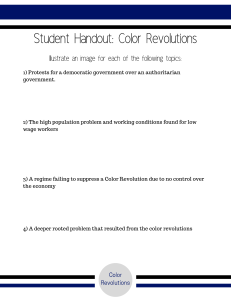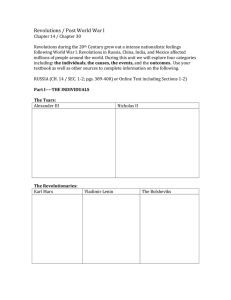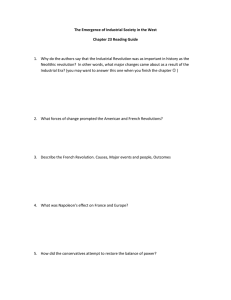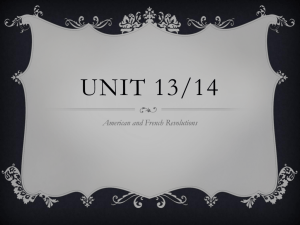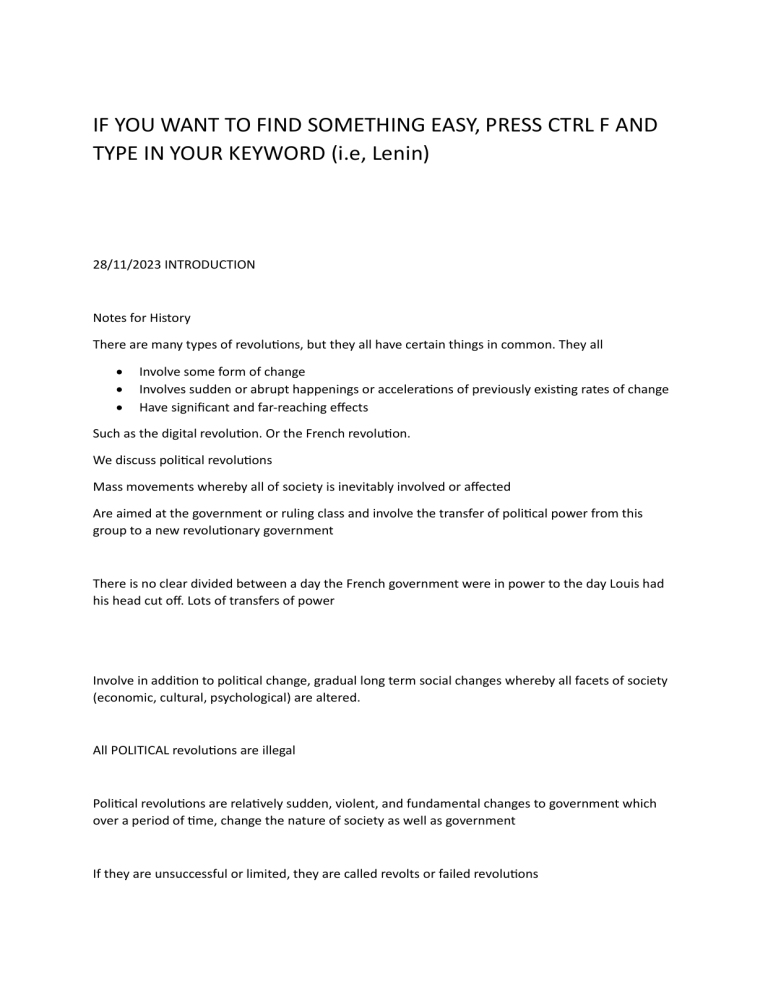
IF YOU WANT TO FIND SOMETHING EASY, PRESS CTRL F AND TYPE IN YOUR KEYWORD (i.e, Lenin) 28/11/2023 INTRODUCTION Notes for History There are many types of revolutions, but they all have certain things in common. They all Involve some form of change Involves sudden or abrupt happenings or accelerations of previously existing rates of change Have significant and far-reaching effects Such as the digital revolution. Or the French revolution. We discuss political revolutions Mass movements whereby all of society is inevitably involved or affected Are aimed at the government or ruling class and involve the transfer of political power from this group to a new revolutionary government There is no clear divided between a day the French government were in power to the day Louis had his head cut off. Lots of transfers of power Involve in addition to political change, gradual long term social changes whereby all facets of society (economic, cultural, psychological) are altered. All POLITICAL revolutions are illegal Political revolutions are relatively sudden, violent, and fundamental changes to government which over a period of time, change the nature of society as well as government If they are unsuccessful or limited, they are called revolts or failed revolutions Key terms: popular movements, individuals, triggering Some short term triggers create revolution (specific events, example, Russian revolution required world war one) the utilisation of ideas, mistakes, people who take advantage of mistakes, etc. There needs to be events before that though. Otherwise no care boo boo. Key skills Outlined for each revolution ‘including’ means everything you could be assessed on in the exam KEY SKILLS Ask questions – inquire Evaluate sources for use as evidence Analyse perspectives (from this time) Evaluate historical interpretations (historians’ views) Analyse causes of revolutions Evaluate the extent of continuity and change Evaluate the historical significance – how did blank contribute Construct arguments
